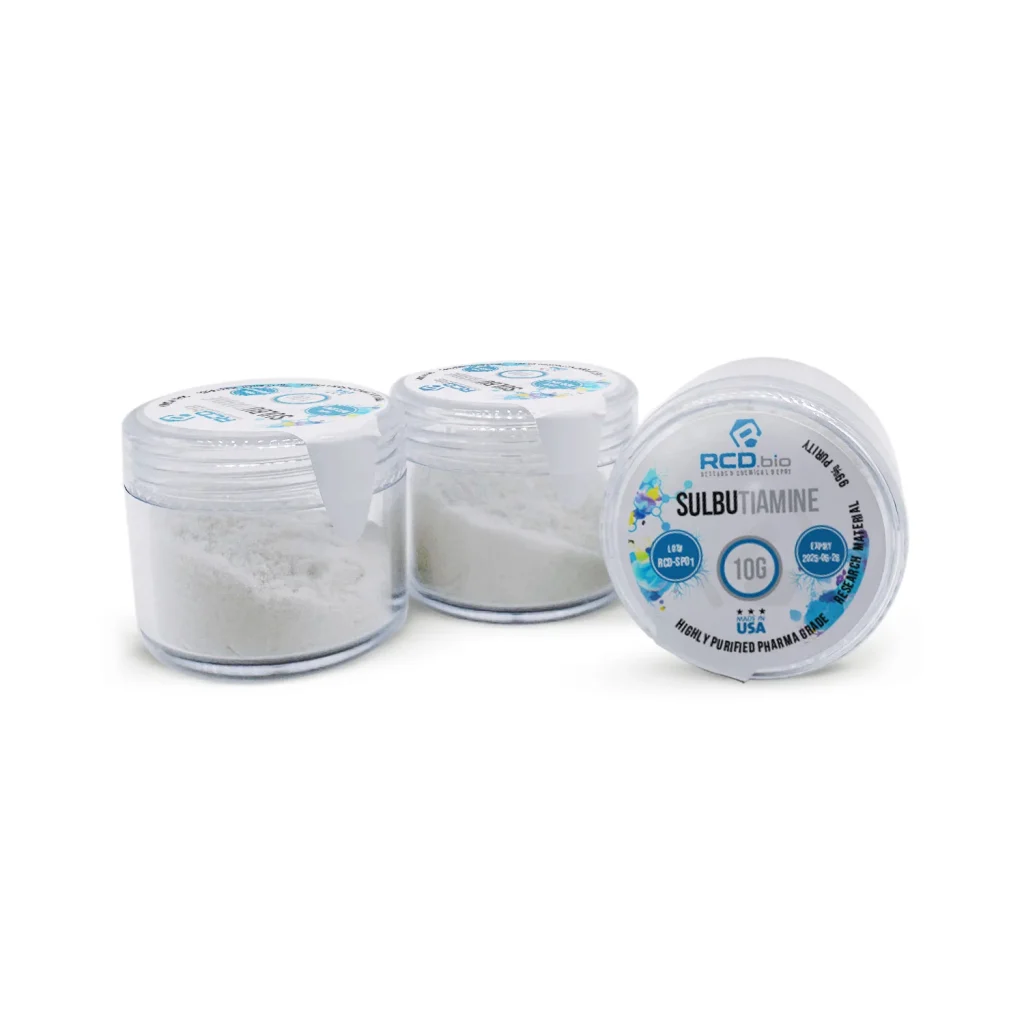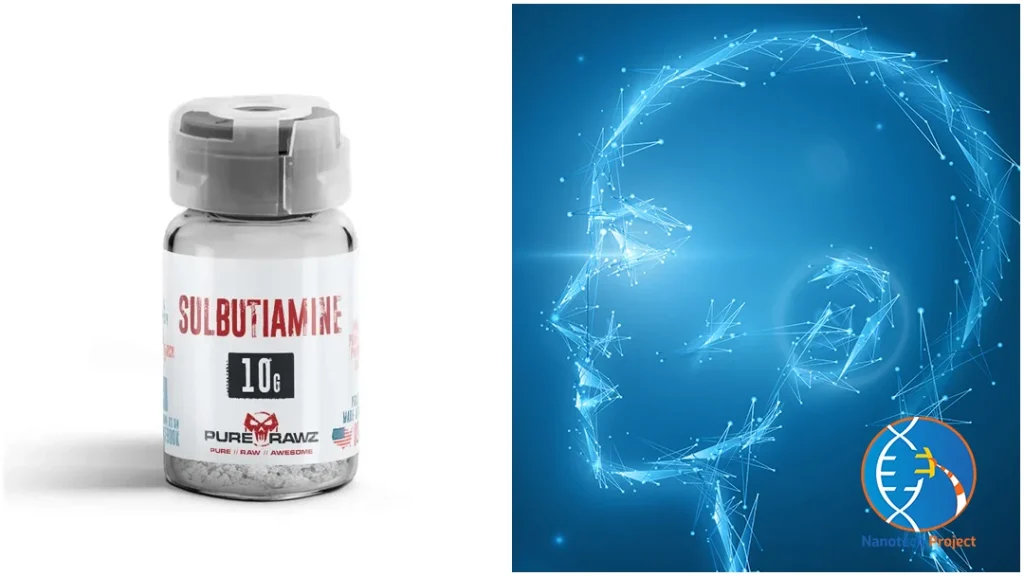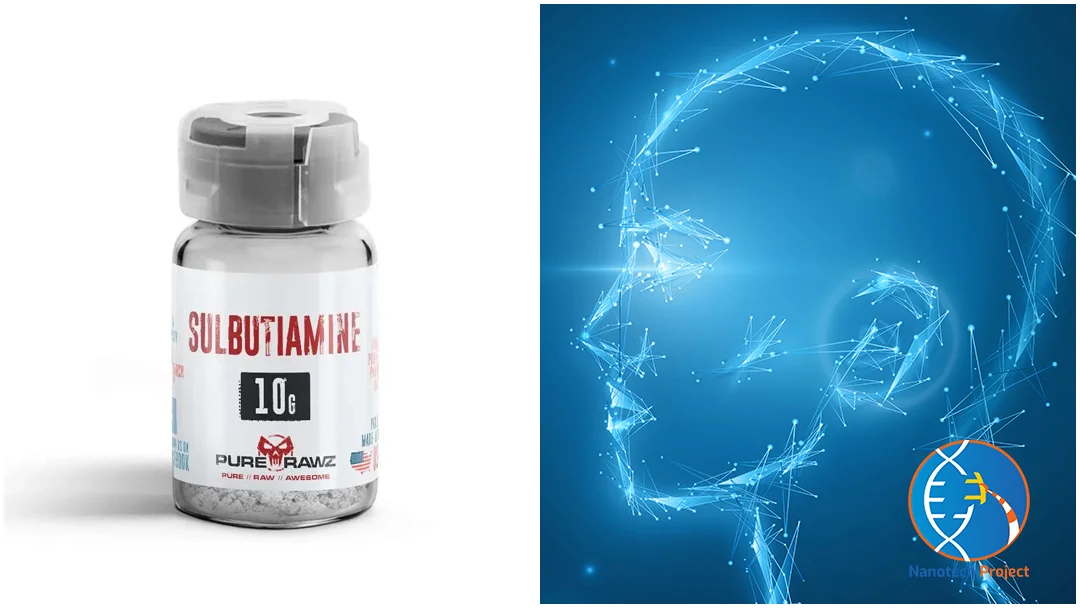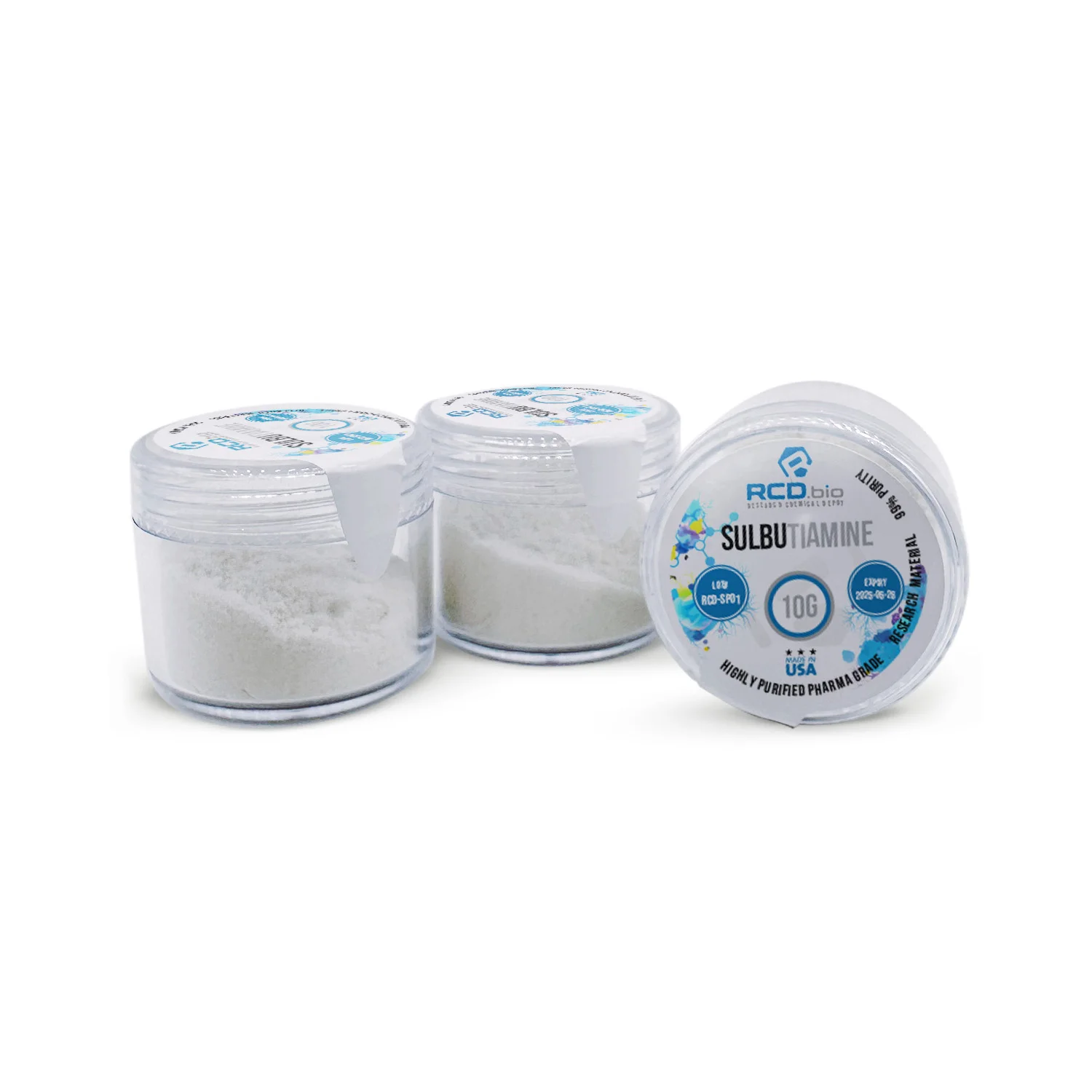Sulbutiamine holds great potential. Originally developed as a treatment for beriberi (a heart disease caused by vitamin B1 or thiamine deficiency), it has since found its audience among bodybuilders, professional athletes, and even non-professionals.
Here’s why that has happened. This fat-soluble derivative of vitamin B1 boosts energy. The French people routinely use it to reduce fatigue. Users also count on this chemical to stimulate digestion, enhance memory and protect the brain from diseases and the effects of aging.
One thing that goes in Sulbutiamine’s favor is that it works. Another is that we’ve several pieces of research evidence showing that it works. This helps Sulbutiamine be associated with a tiny minority of nootropics. Those which have both anecdotal and research evidence backing them.
In this article, we’re going to discuss everything Sulbutiamine. We’ll shed light on how Sulbutiamine works, its benefits, and its side effects. We’ll also discuss how much Sulbutiamine you need to take to garner its positive health effects. Read on if you’ve grown tired of feeling tired throughout the day.
What Is Sulbutiamine?

Sulbutiamine is a synthetic chemical similar to thiamine (vitamin B1). It’s formed by binding two thiamine molecules together. Unlike natural thiamine, which dissolves in water, Sulbutiamine only dissolves in fats. This helps it cross the blood brain barrier and increase thiamine levels in the brain.
Research has shown that having not enough thiamine can cause multiple complications in the brain. In the best-case scenario, it can result in confusion, hallucinations, and vision problems. In the worst-case scenario, thiamine deficiency can lead to brain damage and even death.
Sulbutiamine not only prevents these scenarios. By preventing thiamine triphosphate deficiency, it also helps neurons store and retrieve memories. This helps the brain cells fend off diseases like dementia and Alzheimer’s, both of which are linked to low thiamine levels.
Another benefit that Sulbutiamine offers is that it increases athletic performance. Health experts state that for the body to recover after exercise and repair damaged muscle tissues, it needs adequate thiamine levels. That’s what Sulbutiamine makes sure of.
Overview of Benefits and Side Effects
For those of you who want to overview Sulbutiamine benefits and side effects, this section will come in very handy.
Benefits
- Increases Motivation and Energy
- Reduces Chronic Fatigue
- Improves Memory
- Helps With Erectile Dysfunction
Side Effects
- Mild Skin Allergies
- Mild Agitation
- Headaches
In addition to these side effects, sleep disturbances and/or euphoria may occur if you abuse Sulbutiamine or take high doses.
How Does Sulbutiamine Work?
Sulbutiamine works in multiple ways:
1) Increases the production of acetylcholine.
After crossing the blood brain barrier, Sulbutiamine induces the production of the neurotransmitter acetylcholine. This neurotransmitter helps relay messages between your brain cells. For this reason, it’s crucial for memory, learning, and cognition.
2) Raises the levels of TPP.
HPLC analysis has shown that Sulbutiamine supplements raise the levels of thiamine pyrophosphate (TPP) in the brain. TPP plays a crucial role in the brain’s citric acid cycle, responsible for producing ATP (the body’s energy currency). TPP deficiency can lead to the Wernicke-Korsakoff syndrome.
3) Modulates the levels of dopamine.
Animal models have found that Sulbutiamine has a modulatory effect on dopaminergic cortical transmissions. This is crucial as dopamine controls your mood, memory, and motor skills. It is a vital part of the brain’s pleasure and reward system, hence why it’s known as the “feel-good” hormone.
Benefits of Sulbutiamine
Clinical trials refer to various health benefits of thiamine derivatives like Sulbutiamine. They include, but aren’t limited to: long-term memory formation, reduction in chronic fatigue, and improvement in nerve and muscle function in patients with high blood glucose.
Sulbutiamine treatment also improved sexual performance in patients with erectile dysfunction. Users suggest that taking Sulbutiamine capsules improved their mood and protected them against major depressive attitudes. And they also credit it for enhancing their energy and motivation levels.
Here are the proven benefits of Sulbutiamine:
- Reduces Chronic Fatigue
- Improves Memory Formation And Retention
- Eases Symptoms Of Diabetic Neuropathy
- Helps With Erectile Dysfunction
- Might Reduce Anxiety And Depression
Let’s discuss all these benefits in detail.
1) Reduces Chronic Fatigue
Three clinical trials have shown that Sulbutiamine helps reduce chronic fatigue. The first study was carried out on 1,772 people with infections and long-lasting tiredness. Results show that 52 percent of the study’s subjects experienced a ‘significant’ boost in energy and mood.
The second trial showed similar results, with 44 percent of the 341 patients with chronic fatigue experiencing reduced tiredness after taking Sulbutiamine. And a significant proportion of participants in the 3rd trial were less fatigued after this anti infective treatment.
2) Improves Memory
According to animal and human studies, Sulbutiamine improves memory function and long term memory formation. A human clinical trial found that this chemical, when used with donepezil, improved memory in patients with Alzheimer’s Disease.
Two studies on the rat brain have found the same. Researchers hypothesize that this might be because Sulbutiamine boosts choline, a neurotransmitter that helps with memory retention. By increasing choline levels in the brain, Sulbutiamine, like Mucuna Pruriens, hel[s with memory retention.
3) Helps with Diabetic Neuropathy
Diabetic neuropathy is a disease in which nerves are damaged due to sustained, high blood glucose levels. Prolonged neuropathy can make you vulnerable to infections or injuries. In severe cases, the diabetic polyneuropathy-induced disease can give way to amputation.
One study has shown that chronic administration of Sulbutiamine might help ease the symptoms of this disease. Fifteen patients who took 400 mg Sulbutiamine daily experienced ‘significantly’ improved nerve and muscle function at the end of the study, making this drug a potential treatment.
4) Helps with Erectile Dysfunction
Sulbutiamine might help improve the sexual performance of patients with psychogenic erectile dysfunction, according to a study. Sixteen out of 20 patients experienced an improved erectile function after a 30-day Sulbutiamine course, with eight patients experiencing a total normalization.
Arimidex is another drug that could improve erectile dysfunction. A 3-month study found that the drug improved sexual functions in 72 percent of the participants. This FDA-approved drug can also help prevent the growth of estrogen, the female hormone that causes male boobs.
5) Increases Motivation
Given that it modulates dopamine in the prefrontal cortex, Sulbutiamine might end up making you feel more motivated. That is because dopamine is one of the few neurotransmitters that are directly involved in motivation and reward-driven learning.
Dopamine has been shown to influence the brain pathways that control our motivation levels. It creates a feedback loop for predicting rewards, thereby convincing your brain to signal the body to keep going by telling it that something important is about to happen.
6) Expedites Post-Operative Recovery
Do you have a pending surgical procedure coming your way? You’re not alone. World Health Organization estimates that over 234 million major surgical procedures are untaken every year. The weight of doing the operation is on your surgeon, but the onus of recovery is on you.
The good news is that Sulbutiamine might help you recover quickly, especially if you’re above 60. A trial on 40 patients found that those who took this chemical before undergoing surgery recovered much quicker, and their cognitive functions improved faster than placebo group members.
7) Might Reduce Anxiety and Depression
This Vitamin B analogue might help ease the symptoms of anxiety and depression, too, according to an uncontrolled study. Involving 40 participants, the study found that 75% of the patients experienced reduced anxiety and depression symptoms after taking 400 mg Sulbutiamine daily for a month.
This probably means that Sulbutiamine is similar to Agmatine Sulfate, another nootropic that successfully reduced symptoms of depression, albeit in animal studies.
Sulbutiamine Dosage
Studies have shown that a standard Sulbutiamine dose is between 200 and 600mg/day. You can take this amount in 2 or 3 doses a day. Keep in mind that the dosage range is advised. When we say advised, we mean that an expert hasn’t recommended it.
If you’re a beginner, stick to the low end of the dosage, around 200 mg per day. A few people might get the desired benefits on this, but most won’t feel anything.
Such users might want to take a moderate dose, which is around 500 mg per day. Taking this much amount of Sulbutiamine per day should make you feel all the effects quite strongly.
The maximum Sulbutiamine dosage, around 600 mg per day, will make you feel euphoric. Sure, you’ll also get significant cognitive and physical benefits, but the potential side effects might be severe too.
Sulbutiamine Side Effects

Even though Sulbutiamine doesn’t pose many side effects in optimal doses (up to 600mg/day), it does cause various side effects. These include skin allergies, agitation (in the elderly), nausea, headaches, drowsiness, and tremors. Most of these side effects are infrequent.
You may experience sleep pattern disturbances or euphoria, too. Both these amnesic effects usually occur in high doses or when you abuse this drug. You can avoid experiencing them by sticking to the recommended dosage guidelines, at least for the first few weeks.
When used in combination with antibiotics, Sulbutiamine usage resulted in diarrhea, insomnia, and drowsiness. It is reported that 0.6% of the study’s participants experienced these side effects. But it isn’t clear whether Sulbutiamine or antibiotics were responsible for them.
Keep in mind that this section doesn’t cover all the possible side effects. Consult your doctor for professional medical advice if you want to be on the safe side. Or if you experience any side effects not mentioned in the list given above.
Where to Buy Sulbutianmine?
If you are looking for high-quality sulbutianmine below are the recommend online vendor:
| Vendor | Rating | Buying Link | Verdict |
|---|---|---|---|
| PureRawz | 4.7/5 | Buy Sulbutiamine from PureRawz | High-quality, trusted vendor |
| RCDBio.co | 4.6/5 | Buy Sulbutiamine Powder from RCD Bio | Pure powder form, excellent reputation |
Conclusion
Sulbutiamine proves to be a great supplement if you use it sparingly. At the minimal dose, Sulbutiamine has the potential to provide you with various health benefits.
If you want to use this chemical, but don’t know where you can buy Sulbutiamine online, we recommend that you check out Science Bio.
All of Science Bio’s supplements come with publicly available lab reports, letting you verify their safety and clinical efficacy.
Science Bio also backs Sulbutiamine powder with a 30-day moneyback guarantee and 100% satisfaction guarantee.










